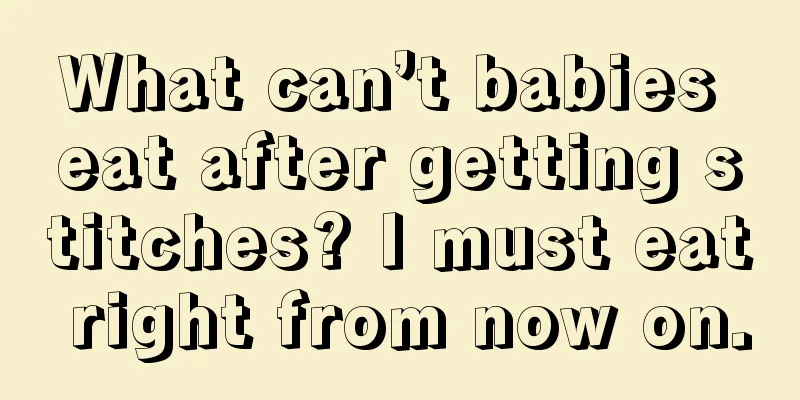What should we do if children have intestinal dysfunction?

|
Many children often suffer from intestinal dysfunction. When this happens, parents are often very worried and don’t know how to treat it. Moreover, if such a phenomenon is not treated in time, it will cause various diseases, so mothers must give their children timely treatment. So, what should be done if a child has intestinal dysfunction? Common causes of diarrhea include: eating too much or too often, which increases the burden on the gastrointestinal tract; adding complementary foods too quickly or too many types of food, and eating too much greasy food with residue, which makes the food cannot be completely digested; irregular feeding, the gastrointestinal tract cannot form a conditioned reflex to secrete digestive juices regularly, resulting in reduced digestive function of the baby, etc. In addition, due to the contamination of food or utensils, infants may eat food containing bacteria and cause gastrointestinal infections. If infants suffer from diseases other than the digestive tract (such as colds, pneumonia, etc.), diarrhea may also occur due to digestive dysfunction. When the ambient temperature is too low or too high, children may also suffer from diarrhea. The following things should be done when babies have diarrhea: (1) Never fast. Regardless of the cause of diarrhea, although the baby's digestive tract function is reduced, the baby can still digest and absorb some nutrients, so breastfed babies should continue to be fed as long as the baby wants to eat. For babies who drink milk, the amount of milk they drink can be reduced by about 1/3 each time, and a little water can be added to the milk. If the baby is not eating enough after reducing the amount, you can add salty rice soup, or feed carrot water or fresh vegetable water to supplement inorganic salts and vitamins. For babies who are already eating complementary foods such as porridge, the amount of these foods can be slightly reduced. It depends on the baby's thirst. (2) Ensure water supply. Detect dehydration early. When an infant has severe diarrhea, accompanied by vomiting, fever, thirst, dry lips, little or no urine, sunken eye sockets and anterior fontanelle, the infant becomes "thin" in a short period of time, the skin becomes "wilted", and the infant cries without tears, this indicates that dehydration has occurred and the sick child should be sent to the hospital for treatment in time. The above methods are all very effective in treating children's intestinal dysfunction. Do not let children drink too cold water, otherwise it will have a great impact on the children. Also, do not eat spicy and greasy food. Try to eat fresh vegetables and fruits. You can eat some meat in moderation, but not too greasy. |
<<: What are the causes of gastrointestinal disorders in children?
>>: What causes high platelet count in children?
Recommend
What is the treatment for mycoplasma pneumonia in children?
Mycoplasma pneumonia in children is a relatively ...
What should I do if my seven-month-old baby has a fever of 38 degrees?
It is very common for babies to have a fever, and...
Do you know the seven healthy parenting practices?
It is said that "raising a child is a techni...
What are the symptoms of mentally retarded children?
Nowadays, many families have a child. They love t...
What should I do if my one-month-old baby doesn't poop for a day?
Normally, it is normal for both adults and childr...
Children's stool is dry and granular
If a child's stool is granular, it means that...
What is the normal vision of a 9-year-old child?
Everyone hopes that their children's eyesight...
Treatment of severe vomiting in babies
It is quite common for babies to spit up milk whe...
What should children with melanoma eat?
Food is the most important thing for people, and ...
What to do if a child has a fever and stomachache
A baby is an important member of the family, and ...
What causes fever in baby's hands and feet?
Baby fever is the most common thing in life, but ...
When should infants drink glucose?
Babies are the ones we need to protect, so we sho...
Baby head shape corrector
After a newborn is born, parents should prepare a...
What to do if your baby is short
The baby will have relevant examinations at each ...
How do children grow taller in spring?
Spring is here, it is a season of growth, because...









